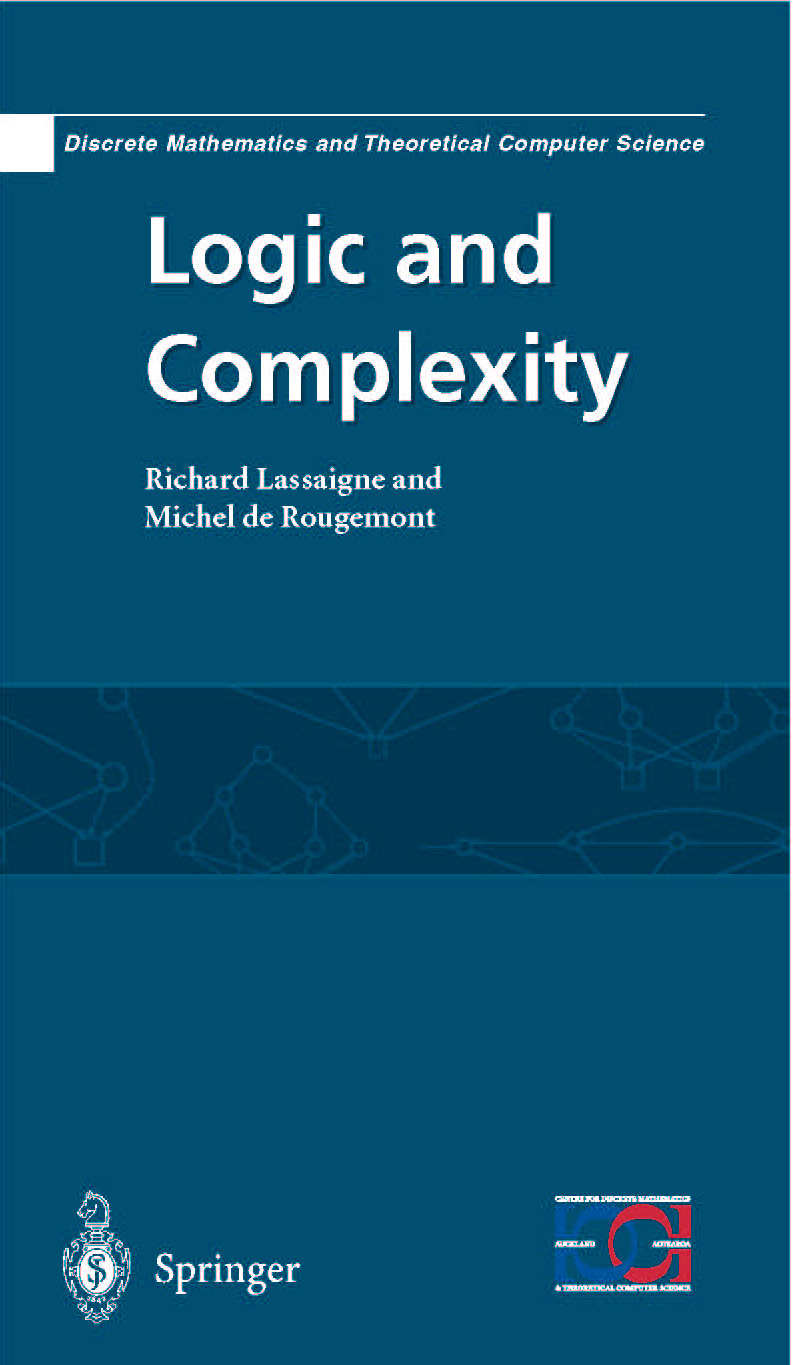

Richard Lassaigne, Michel de Rougemont. Logic and Complexity, Springer-Verlag London, 2004, 2004, X, 359 p., Geb. ISBN: 1-85233-565-3.
Logic and Complexity looks at basic logic as it is used in Computer
Science, and provides students with a logical approach to Complexity
theory. With plenty of exercises, this book presents classical notions
of mathematical logic, such as decidability, completeness and
incompleteness, as well as new ideas brought by complexity theory such
as NP-completeness, randomness and approximations, providing a better
understanding for efficient algorithmic solutions to problems. Divided
into three parts, it covers:
Model Theory and Recursive Functions -
introducing the basic model theory of propositional, 1st order,
inductive definitions and 2nd order logic.
Recursive functions, Turing
computability and decidability are also examined.
Descriptive
Complexity - looking at the relationship between definitions of
problems, queries, properties of programs and their computational
complexity.
Approximation - explaining how some optimization problems
and counting problems can be approximated according to their logical
form.
Logic is important in Computer Science, particularly for
verification problems and database query languages such as SQL. Students
and researchers in this field will find this book of great interest.